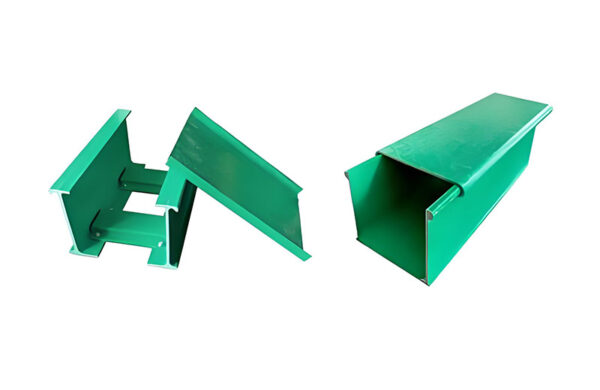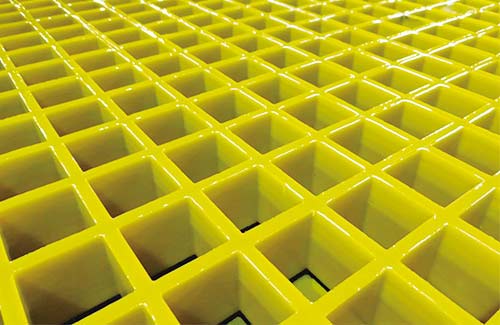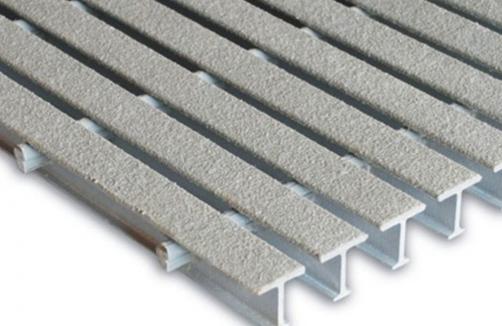FRP Grating for Chemical Plants: Enhancing Safety and Durability in Industrial Environments
Chemical plants are highly demanding environments where safety, durability, and efficiency are paramount. Traditional materials like steel and concrete often struggle to meet the rigorous conditions, leading to frequent maintenance, corrosion, and potential hazards. Fiber Reinforced Polymer (FRP) grating has emerged as a superior alternative, offering enhanced performance in demanding industrial settings. But what exactly makes FRP grating the ideal choice for chemical plants? How does it address common challenges, and what benefits can plants expect? Let’s explore these questions in detail.
Why Choose FRP Grating for Chemical Plants?

Chemical plants expose materials to extreme temperatures, corrosive substances, and heavy loads, all of which can compromise structural integrity. Traditional materials like steel rust and degrade over time, requiring costly repairs and replacements. FRP grating, however, combines the strength of fiberglass with the durability of polymer composites, offering a corrosion-resistant and lightweight solution.
Key Benefits of FRP Grating:
– Corrosion Resistance: Unlike steel, FRP doesn’t rust or corrode when exposed to chemicals, acids, or alkalis.
– Lightweight Yet Strong: FRP grating is 75% lighter than steel, reducing load-bearing stress on supports and improving safety.
– Low Maintenance: With no painting or coatings needed, FRP grating minimizes maintenance costs and downtime.
– Electrical Insulation: FRP is non-conductive, making it ideal for areas where electrical hazards are present.
Addressing Common Challenges in Chemical Plants
1. Corrosion and Chemical Exposure
Many chemical plants handle hazardous materials that can destroy metal surfaces. FRP grating’s chemical resistance ensures long-term durability without degradation, reducing the risk of leaks or structural failure.
2. Heavy Foot Traffic and Equipment Loads
Plant floors must withstand constant use from workers, forklifts, and heavy machinery. FRP grating’s high load-bearing capacity and slip-resistant surface make it safer for both employees and equipment.
3. Fire Hazards
Chemical plants often face fire risks, but FRP grating has a high fire rating, providing an additional layer of safety. It won’t melt or emit toxic fumes when exposed to heat.
4. Installation and Flexibility
Unlike traditional materials, FRP grating can be cut to size on-site, simplifying installation and reducing project timelines. Its flexibility also allows for custom designs to fit unique plant layouts.
Case Study: FRP Grating in Action
A leading chemical manufacturing plant replaced its aging steel walkways with FRP grating. The transition resulted in:
– Reduced Maintenance Costs: No more rust-related repairs.
– Improved Safety: Slip-resistant surfaces minimized accidents.
– Enhanced Durability: The grating withstood harsh chemical exposure without damage.
– Energy Savings: The lightweight design reduced the load on supports, lowering energy costs.
Sharing Best Practices for FRP Grating Installation
When installing FRP grating in chemical plants, consider these tips:
– Proper Support: Ensure supports are designed to handle the grating’s weight and load requirements.
– Edge Protection: Use grating edging to prevent trip hazards and contain chemicals.
– Regular Inspections: While low-maintenance, periodic inspections ensure long-term performance.
Conclusion
FRP grating offers a compelling solution for chemical plants seeking to enhance safety and durability. By addressing common challenges like corrosion, heavy loads, and fire hazards, FRP grating provides a reliable, cost-effective, and sustainable alternative to traditional materials. For plants looking to improve efficiency and worker safety, investing in FRP grating is a smart decision.
If you’re considering upgrading your plant’s flooring, explore the benefits of FRP grating and discover how it can revolutionize your operations. Share your experiences or questions in the comments below—let’s discuss how FRP grating can benefit your industrial environment!







